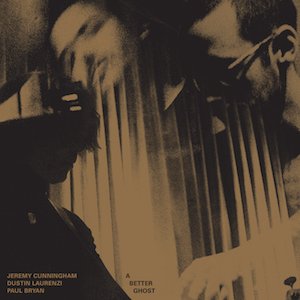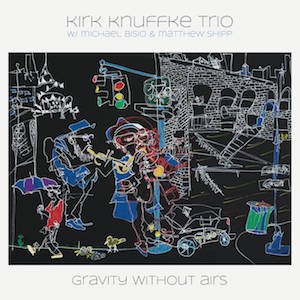Label: Astral Spirits Records, 2022
Personnel - Keefe Jackson - tenor and sopranino saxophone; Oscar Jan Hoogland: piano; Joshua Abrams: double bass; Mikel Patrick Avery: drums.
This wonderful quartet - a cooperative association between the skilled Amsterdam-based pianist Oscar Jan Hoogland and three multifaceted members of the Chicago jazz scene, saxophonist Keefe Jackson, bassist Joshua Abrams, and drummer Mikel Patrick Avery (now based in Philadelphia) - has the capacity to reinvent classic tunes from Thelonious Monk, Herbie Nichols, and Dewey Redman with excitement and accessibility without sounding repetitive or outdated. Comprising six grown-up tracks, These Things Happen is a concise work that, without stretching past the 22-minute mark, includes two original compositions by the pianist.
Implemented with polyrhythmic zest, a fine marching-like strut, and shifting meter ability, Monk’s inevitable “Epistrophy” sets a scalding hot temperature from the start. Jackson combines magnitude and winning aesthetics in his phrasing, obtaining clever commentary from Hoogland, whose tradition-steeped pianism is dazzlingly beautiful. There’s more Monk and “Bemsha Swing”, here modified to look like a sketchy, explorative, and charmingly abstract murmuration.
Dewey Redman’s “Gotta Get Some Sleep” first appeared on Keith Jarrett’s 1970 quartet album Bop-Be (the lineup was rounded out with Charlie Haden and Paul Motian), getting his dose of innovation here through fragmentation, melodic wooziness, buzzing sounds, drones, and circular patterns. It simmers without reaching hyper-activity, staying from from the swaying, swooning and unique groove of Herbie Nichols’ gem “The Happenings”. Taking advantage of a cohesive and focused rhythm section, Jackson excels in this latter tune with an absolutely breathtaking drive. He’s followed by Abrams, who employs portions of the stunning main melody as reference points to expand his solo.
The record wouldn't be the same without Hoogland’s two originals: the soulful and quiet “Wimpel” passes the idea of making peace with itself by bringing back an old idea, reshape it with a newfound energy, and then moving on. “Aanhanghuis” was the perfect choice to close an outstanding set. Jackson goes to exotic places while convincingly blowing the sopranino sax, and his deliberate out-of-focus construction and catchy hooks are much welcome in a piece that marries avant-jazz angles and swinging motion. Hoogland, in turn, explores different ranges on the keyboard, going effortlessly and blithely from low to high registers.
Rich in melodic material and with maturity in both the arrangements (by the pianist) and impromptu speeches, These Things Happen benefits from the open-mindedness and extraordinary energy of all four players.
Favorite Tracks:
01 - Epistrophy ► 04 - The Happenings ► 06 - Aanhanghuis








































